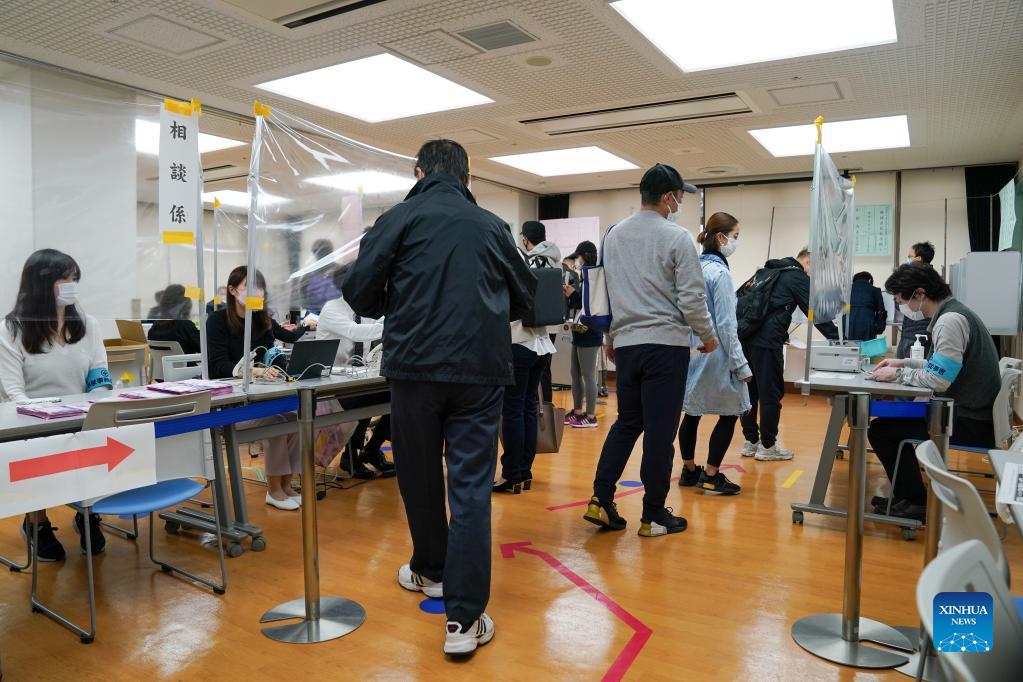
Voters cast ballots at a polling station for Japan's general election in Tokyo, Japan on Oct. 31, 2021. Voting for Japan's general election began on Sunday morning with Prime Minister Fumio Kishida seeking a public mandate for his policies regarding COVID-19, the economy and security. (Photo by Christopher Jue/Xinhua)
TOKYO, Oct. 31 (Xinhua) -- Voting for Japan's general election began on Sunday morning with Prime Minister Fumio Kishida seeking a public mandate for his policies regarding COVID-19, the economy and security.
The ruling Liberal Democratic Party (LDP) and its coalition partner Komeito aim to keep a majority in the House of Representatives, the powerful lower chamber of parliament.
The result of the general election depends on the constituencies where ruling coalition candidates were in close race with those from opposition parties, which have also formed coalition in a bid to take the reins of government.
Polling stations across the country will close at 8:00 p.m. local time, and ballot counting is expected to last late into the night.
Media polls suggested that the ruling coalition will retain its majority, taking at least 233 seats in the 465-member lower house, which has more powers over the upper house with the final say in electing the prime minister, passing state budgets and ratifying international treaties.
Of the lower house seats, 289 will come from single-member districts, where candidates fight head-to-head for votes. Another 176 will be decided through proportional representation which allocates seats based on parties' votes in 11 regional blocks.
According to a Kyodo News survey conducted earlier this week, LDP candidates were in close battles with opposition rivals in about 70 single-member districts, as around 40 percent of voters are still undecided.
The general election is the first major test for Kishida since he took office on Oct. 4. The new prime minister has pledged to stimulate economic growth while redistributing more economic benefits to the middle class under his vision of "new capitalism."
Under Kishida's vision, the government plans to secure more hospital beds for COVID-19 patients as a preparation for a possible sixth wave of infections.
Kishida has also said the government will propose a stimulus package within the year to support people and businesses stricken by the pandemic.
The Constitutional Democratic Party of Japan and other opposition parties have claimed that the government has failed its task of COVID-19 response and that the Abenomics policy upheld by the ruling LDP has widened the country's wealth gap as the policy only promoted corporate earnings and share prices but failed to achieve higher wages.
The opposition parties have called for lowering the consumption tax to take off some pressure on low- and middle-class households, allowing married couples to take different surnames and recognizing same-sex marriage. Enditem